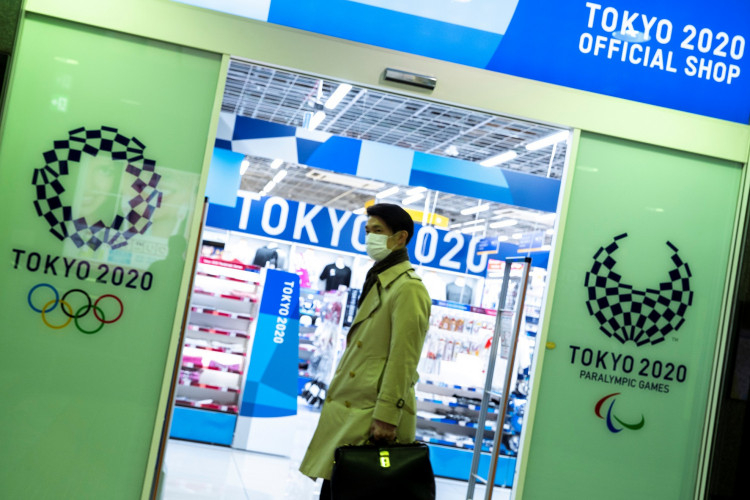Japan is reportedly searching for a face-saving excuse to cancel the Summer Olympic games in Tokyo with the government of Prime Minister Yoshihide Suga dealing with rising COVID-19 cases ahead of the games from July 23 to Aug. 8, a year later than originally planned.
Government insiders cited by media said the officials accept it is now impossible to safely hold the Tokyo Olympics since new cases have stubbornly remained at more than 4,000 per day since Jan. 5. There is also the danger posed by the more transmissible COVID-19 mutation called "B.1.1.7," the first cases of which were reported in late December.
Despite the surge in bad news, the Suga administration is telling the Japanese public everything is being done to save the Tokyo Olympics.
Tokyo 2020 CEO Toshiro Muto said organizers are "unwavering" in their decision to host the Summer Olympics this year. "Holding the games is our unwavering policy, and at this point in time we're not discussing anything other than that," said Muto.
Muto admitted the Japanese people are "anxious" about staging the Olympics as local virus cases soar. This concern is especially strong in Tokyo, which leads Japan in total confirmed cases. Tokyo is currently under a state of emergency meant to curb the spread of the disease.
Muto insists staging the Olympics is still possible without requiring athletes and fans to be vaccinated. He also believes Japanese public opinion, now strongly against holding the Games, will change once the virus situation improves with rising vaccination numbers.
"We are not discussing cancellation," he insisted.
Privately, however, top administration officials are beginning to accept the grim reality the Tokyo Olympics can't be saved. They say Japan must now focus on securing the next Olympic Games up for grabs set for 2032.
Japan's partner in the Games, the International Olympic Committee (IOC), continues to sound upbeat. This week, IOC president Thomas Bach asserted the Tokyo Olympics will go ahead this summer.
He again said there is "no plan B" in the event of a cancellation despite the COVID-19 surge currently battering all of Japan.
"We have at this moment, no reason whatsoever to believe that the Olympic Games in Tokyo will not open on the 23rd of July in the Olympic stadium in Tokyo," said Bach to Kyodo News.
Japan spent close to $30 billion on the cancelled 2020 Olympics and is conservatively estimated to have suffered some $6 billion in economic losses due to the cancellation.






